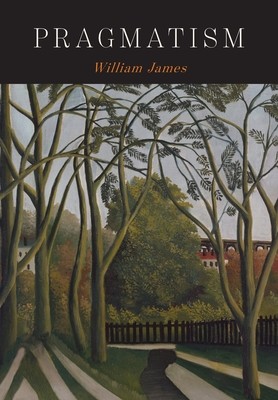
- We will send in 10–14 business days.
- Author: William James
- Publisher: Martino Fine Books
- Year: 2020
- Pages: 108
- ISBN-10: 1684224578
- ISBN-13: 9781684224579
- Format: 17 x 24.4 x 0.6 cm, softcover
- Language: English
- SAVE -10% with code: EXTRA
Reviews
Description
2020 Reprint of the 1907 Edition. Pragmatism is a philosophical tradition that, very broadly, understands knowing the world as inseparable from agency within it. This general idea has attracted a remarkably rich and at times contrary range of interpretations, including: that all philosophical concepts should be tested via scientific experimentation, that a claim is true if and only if it is useful (relatedly: if a philosophical theory does not contribute directly to social progress then it is not worth much), that experience consists in transacting with rather than representing nature, that articulate language rests on a deep bed of shared human practices that can never be fully 'made explicit'. Its first generation was initiated by the so-called 'classical pragmatists' Charles Sanders Peirce (1839-1914), who first defined and defended the view, and his close friend and colleague William James (1842-1910), who further developed and ably popularized it. During this initial period, pragmatists focused significantly on theorizing inquiry, meaning and the nature of truth.
In this book, James tests competing systems of thought in the "marketplace of actual experience" to determine their validity. In other words, he examines whether adopting a particular philosophical theory or way of looking at the world makes an actual difference in individual conduct. James not only makes a strong case for his own ideas but also mounts a powerful attack against the transcendental and rationalist tradition.
- Author: William James
- Publisher: Martino Fine Books
- Year: 2020
- Pages: 108
- ISBN-10: 1684224578
- ISBN-13: 9781684224579
- Format: 17 x 24.4 x 0.6 cm, softcover
- Language: English English
2020 Reprint of the 1907 Edition. Pragmatism is a philosophical tradition that, very broadly, understands knowing the world as inseparable from agency within it. This general idea has attracted a remarkably rich and at times contrary range of interpretations, including: that all philosophical concepts should be tested via scientific experimentation, that a claim is true if and only if it is useful (relatedly: if a philosophical theory does not contribute directly to social progress then it is not worth much), that experience consists in transacting with rather than representing nature, that articulate language rests on a deep bed of shared human practices that can never be fully 'made explicit'. Its first generation was initiated by the so-called 'classical pragmatists' Charles Sanders Peirce (1839-1914), who first defined and defended the view, and his close friend and colleague William James (1842-1910), who further developed and ably popularized it. During this initial period, pragmatists focused significantly on theorizing inquiry, meaning and the nature of truth.
In this book, James tests competing systems of thought in the "marketplace of actual experience" to determine their validity. In other words, he examines whether adopting a particular philosophical theory or way of looking at the world makes an actual difference in individual conduct. James not only makes a strong case for his own ideas but also mounts a powerful attack against the transcendental and rationalist tradition.


Reviews